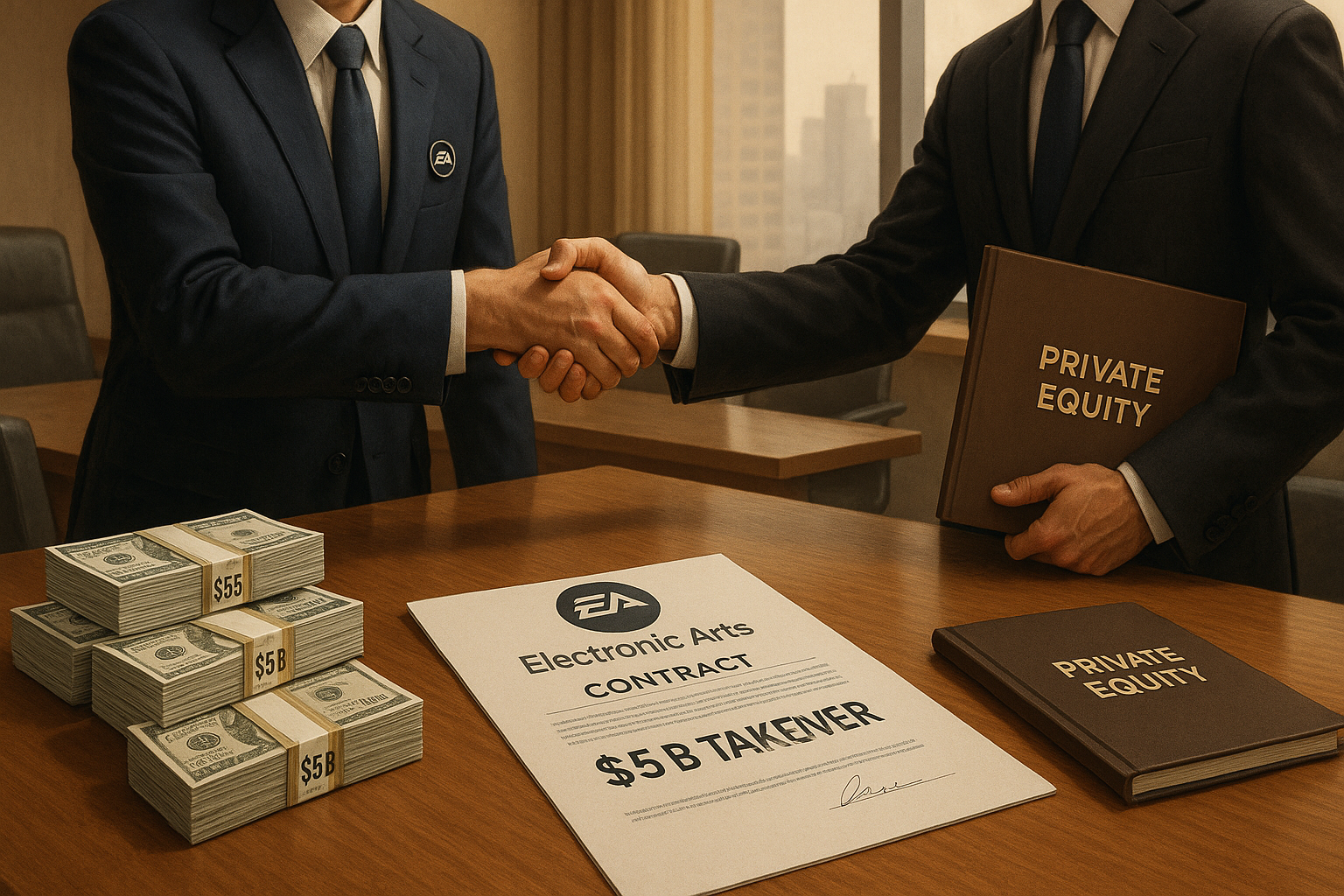In what might be the most expensive game of Monopoly ever played, video game giant Electronic Arts (EA) is set to go private in a mammoth $55 billion deal that values the company at $210 per share. The transaction marks one of the largest private equity takeovers in recent memory, adding another chapter to the ongoing saga of public companies deciding they'd rather not deal with quarterly earnings calls and activist investors anymore.
Look, there's something deliciously ironic about EA—a company whose business model increasingly revolves around in-game purchases and monetization strategies—essentially becoming an in-portfolio purchase for private equity. It's the corporate equivalent of paying real money for virtual goods, except this time the goods are actual game studios and intellectual property.
The $210 per share price tag represents a roughly 26% premium over where EA was trading before takeover rumors began circulating. Which, in the grand tradition of private equity deals, prompts the question: are the buyers seeing something the market isn't, or are they simply playing with too much money?
The timing here is particularly interesting. Video game companies have been facing multiple headwinds—development costs spiraling upward, post-pandemic gaming hangovers, and increasingly fickle consumer tastes. EA itself has delivered mixed results lately, with some marquee titles underperforming while its reliable sports franchises continue printing money with the efficiency of a Federal Reserve that only cares about Madden ratings.
One model to consider is what I call the "temporarily misunderstood asset" play. Private equity loves nothing more than a company with:
- Strong recurring revenue (hello, subscription services and annual sports title releases)
- Valuable intellectual property (The Sims, Battlefield, FIFA—excuse me, "EA Sports FC" now)
- Cost-cutting opportunities (which is PE-speak for "layoffs are coming")
- A plausible growth story that just needs time away from quarterly scrutiny
This deal checks all those boxes. EA has been transitioning toward more predictable, service-based revenue streams for years—something Wall Street supposedly values but often doesn't have the patience to see through to completion. Private ownership provides runway to complete this transformation without quarterly earnings pressure.
The transaction also reveals something about the current state of capital markets. With $55 billion to deploy on a video game company, private equity clearly isn't hurting for investment firepower. Interest rates may be higher than they were during the zero-rate environment, but there's still enough cheap money sloshing around the system to fund mega-deals.
There's also a consolidation narrative here worth considering. Microsoft swallowed Activision Blizzard. Sony grabbed Bungie. Take-Two absorbed Zynga. The gaming industry is experiencing a furious round of musical chairs, with everyone scrambling to secure content, development talent, and player relationships before the music stops. Taking EA private could position it for either aggressive acquisitions of its own or prep it for eventual sale to an even larger entity—perhaps one of the tech giants looking to strengthen their gaming credentials.
For shareholders, $210 represents an exit opportunity that, frankly, the public markets weren't offering anytime soon. EA's stock has largely treaded water in recent years despite the gaming industry's overall growth. The premium is substantial enough that most institutional investors will take the money and run faster than a character in Mirror's Edge.
The broader question this raises is whether public markets are still the best home for companies in transition. The quarterly capitalism model increasingly pushes executives toward short-term thinking, while private markets offer the luxury of time—albeit with the tradeoff of significantly higher debt loads.
I mean, there's a certain poetry to EA going private. This is a company that built its modern business on the idea that games aren't finished products but ongoing services requiring continuous investment. Perhaps EA itself needs the same treatment: a period of intensive development away from the scrutinizing eyes of public markets before its next release.
For gamers wondering what this means—probably not much in the immediate term. Your FIFA (sorry, EA Sports FC) Ultimate Team packs aren't going anywhere. But longer-term, expect even more focus on predictable revenue generators and possibly fewer creative risks. Private equity didn't pay $55 billion for artistic experimentation.
In any case, EA shareholders just hit the equivalent of a rare loot box drop—$210 a share is the kind of windfall that makes the long stretches of market underperformance worth it. Game over, level complete, achievement unlocked.
